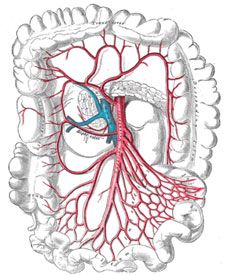Article
Number of Lymph Nodes Examined for Colon Cancer Increases but Proportion of Node-Positive Cancers Does Not
Author(s):
A greater number of lymph nodes are being screened in colon cancer but this has not led to more diagnoses of node-positive colon cancer.

Physicians are evaluating a greater number of lymph nodes in patients to check for colon cancer, but the increased screening has not led to more diagnoses of node-positive colon cancer, according to a study released today.
The study, published in the September 14 issue of The Journal of the American Medical Association, examined data from the Surveillance, Epidemiology, and End Results (SEER) program, which analyzed a total of 86,394 patients surgically treated for colon cancer between 1988 and 2008.
The study found that between 1988 and 1990, 34.6% of patients (n = 3875/11,200) received lymph node evaluation for 12 or more lymph nodes. That percentage increased to 37.9% (n = 4362/11,492) between 1994 and 1996, 46.8% (n = 6175/13,209) in 2000 to 2002, and 73.6% (n = 9798/13,310) between 2006 and 2008.
Despite the significantly greater number of lymph node evaluations performed, the percentage of node-positive cancers remained relatively unchanged in this patient population. Between 1988 and 1990, 40.3% of patients evaluated had node-positive colon cancer. Between 2006 and 2008, 42.4% of patients had node-positive colon cancer.
The lymph node evaluation rate also did not seem to affect survival. While a greater number of lymph nodes correlated with a slightly increased risk of developing colon cancer, the same patients had a lower relative 5-year hazard rate compared to patients with fewer lymph nodes.
“When stratified by node positivity, patients with node-positive disease as well as node-negative disease continued to experience lower relative hazard of death when more lymph nodes were evaluated,” the authors wrote. “[T]he number of lymph nodes evaluated for colon cancer markedly increased in the past 2 decades but was not associated with an overall shift toward higher-staged cancers, questioning the upstaging mechanism as the primary basis for improved survival in patients with more lymph nodes evaluated.”
The authors noted a few study limitations, including the lack of data on comorbidities, the impossibility of determining reasons for more or less extensive lymph node evaluations, and the fact that the study was not limited to any particular age group, race, or stage of colon cancer.








